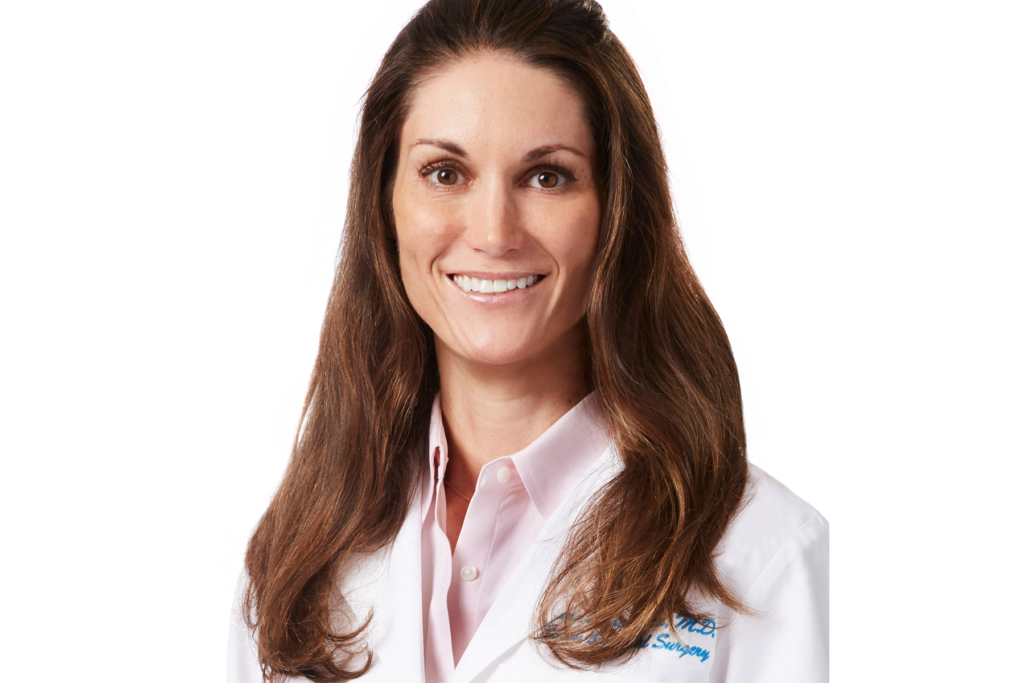What is a common misperception about colon cancer screening?
Much of the patient population, and even some physicians, still think the appropriate age for colon cancer screening with a colonoscopy is age 50. However, about two years ago, the recommendation was lowered to age 45. We were seeing an exponential increase in younger people with colon cancer, and a decline in the older population. The reason for the decline is that older patients were getting their colonoscopies done on time and having pre-cancerous polyps removed.
Besides age, what are the risk factors of colon cancer?
Genetics and smoking are the top two risk factors. If you have a family history of cancer or colon cancer, you should talk to your doctor about getting screened before age 45. If you have concerning symptoms and aren’t sure about your family history, you can discuss appropriate screenings with your doctor as well.
What are the common symptoms of colon cancer?
The most common symptoms we see are bleeding with bowel movements, a change in bowel habits, abdominal pain, or patients who don’t think their bowel movements are the same as they have usually been. Colorectal surgeons listen to their patients because they know their bodies best. Colonoscopy remains the most effective way to screen for colon cancer. Do your research and find a board-certified colorectal surgeon for diagnosis, and if surgery is recommended, ask that surgeon how many cases he or she has done and about the outcomes.
How is colon cancer treated?
When caught early, colon cancer or rectal cancer can be 100% treated with minimally invasive surgery, such as laparoscopic, or robotic, surgery. The outcomes are patient-specific. The surgeon will go over risk factors, tumor characteristics, and typical outcomes. Most patients are candidates for laparoscopic surgery, and recovery times are faster because the incisions are smaller. Robotic surgery typically has better outcomes than traditional colorectal surgery because the surgeon has better visualization in the narrow space of the pelvis. This technology has helped tremendously by allowing us to obtain larger margins, and patients typically do not need an ostomy. Patients with colon cancer are often treated with a combination of surgery and chemotherapy. Some patients may only need surgery, or possibly will need chemotherapy before or after surgery. This is usually based on the tumor location and its size. When colon cancer is treated with surgery and chemotherapy, it is usually very effective and well-tolerated by patients.
What’s the latest news in colon and rectal surgery?
Along the minimally invasive route, we now offer enhanced recovery for patients who are good candidates. They are usually shocked to learn that appropriate pre-operative, intra-operative, and post-operative measures can allow a much shorter stay in the hospital—usually a one-night stay for young, healthy patients. Shorter times in the hospital result in a quicker recovery because patients are comfortable at home with families and there is a reduced chance for blood clots, pneumonia, and lately, COVID-19. We are now doing clinical trials for outpatient stays for colorectal surgery.
Dr. Sarah Boostrom is board certified in colon and rectal surgery by the American Board of Colon and Rectal Surgery and in general surgery by the American Board of Surgery. She is the founder of Colon and Rectal Surgical Consultants of North Texas. She earned her medical degree from The University of Texas Health Science Center in San Antonio, followed by general surgery residency at Mayo Clinic College of Medicine. She then completed her fellowship in colon and rectal surgery at Mayo Clinic College of Medicine. Dr. Boostrom is the recipient of the Kaare K. Nygaard Excellence in Clinical Research Award as well as the Mayo Brothers Distinguished Fellow Award. She is an active member of many prestigious surgical societies, has authored multiple peer-reviewed journal articles and book chapters, and has presented nationally and locally throughout her career. She is experienced in minimally invasive surgical techniques, including laparoscopy and robotics. She specializes in the treatment of colon and rectal cancer, inflammatory bowel syndromes, diverticulitis, pelvic floor dysfunction, and anorectal disease. Physician is an employee of HealthTexas Provider Network, a member of Baylor Scott & White Health. ©2022 Baylor Scott & White Health.





